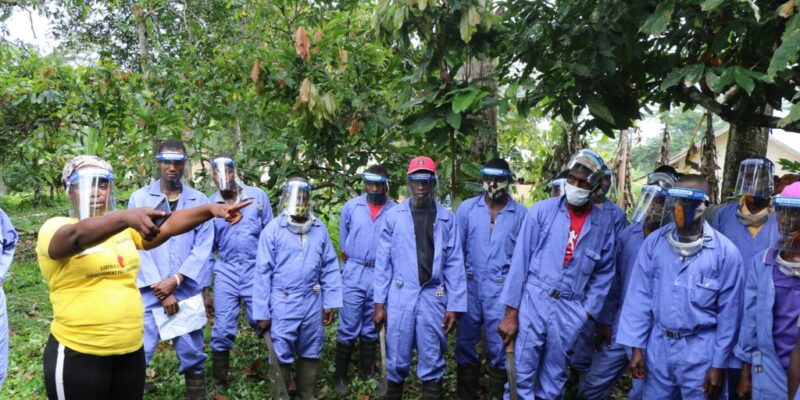Agriculture extension officers play a crucial role in bridging the gap between agricultural research and practical farming. They work directly with farmers to implement modern techniques, improve productivity, and promote sustainable farming practices. To succeed in this dynamic field, agriculture extension officers need a diverse skill set that combines technical knowledge, communication abilities, and problem-solving acumen. This article explores ten essential skills that every agriculture extension officer should develop to achieve success in their career.
Agriculture Extension Officer:Technical Knowledge
The foundation of an agriculture extension officer’s expertise lies in their technical knowledge. This includes understanding agronomy, soil science, plant pathology, entomology, and animal husbandry. An in-depth knowledge of crop and livestock production, pest and disease management, irrigation techniques, and sustainable farming practices is crucial. Continuous learning and staying updated with the latest advancements in agricultural research and technologies are essential to provide accurate and effective guidance to farmers.
Communication Skills
Effective communication is vital for agriculture officers as they interact with a diverse range of stakeholders, including farmers, researchers, government officials, and community leaders. They must be able to convey complex technical information in a clear and understandable manner. This includes verbal and written communication, as well as the ability to listen actively and empathetically. Good communication skills help build trust and rapport with farmers, making it easier to implement new practices and technologies.
Agriculture Extension Officer: Problem-Solving Abilities
Agriculture officers often encounter various challenges and issues in the field, from pest infestations to crop failures. The ability to analyze problems, identify root causes, and develop practical solutions is critical. This requires a combination of technical knowledge, critical thinking, and creativity. Effective problem-solving also involves collaborating with farmers and other stakeholders to develop strategies that are feasible and sustainable in the long term.
4. Interpersonal Skills
Building strong relationships with farmers and other community members is a key aspect of an agriculture extension officer’s role. Interpersonal skills, such as empathy, patience, and cultural sensitivity, are essential for understanding the unique needs and perspectives of different stakeholders. These skills help foster a supportive and cooperative environment, making it easier to introduce new practices and technologies. Agriculture extension officers must also be adept at conflict resolution to address any disagreements or misunderstandings that may arise.
Teaching and Training Skills
One of the primary responsibilities of agriculture extension officers is to educate farmers about new techniques, technologies, and best practices. This requires effective teaching and training skills, including the ability to design and deliver engaging and informative workshops, demonstrations, and field days. Understanding adult learning principles and using a variety of teaching methods to accommodate different learning styles are important for ensuring that farmers can effectively apply the knowledge they gain.
Project Management
Agriculture officers often manage multiple projects simultaneously, from organizing training sessions to implementing community development initiatives. Strong project management skills, including planning, organizing, budgeting, and monitoring, are essential for ensuring the successful execution of these projects. This also involves setting clear objectives, developing timelines, and coordinating with various stakeholders to achieve desired outcomes. Effective project management ensures that resources are used efficiently and that projects deliver tangible benefits to the community.
Technological Proficiency
In today’s digital age, agriculture extension officers must be proficient in using various technologies and tools. This includes familiarity with agricultural software, data management systems, and digital communication platforms. Technological proficiency enables extension officers to collect and analyze data, track progress, and communicate more effectively with farmers and other stakeholders. Additionally, understanding the potential of emerging technologies, such as precision agriculture, drones, and remote sensing, can help extension officers introduce innovative solutions to farmers.
Cultural Competence
Agriculture extension officers work with diverse communities that have different cultural practices, beliefs, and values. Cultural competence, or the ability to understand, respect, and work effectively with people from different cultural backgrounds, is crucial for building trust and rapport. This involves being aware of cultural norms and traditions, adapting communication and engagement strategies accordingly, and showing respect for local knowledge and practices. Culturally competent extension officers are better able to navigate complex social dynamics and foster inclusive and collaborative relationships.
Advocacy and Policy Engagement
Agriculture officers often serve as advocates for farmers and rural communities, representing their interests in policy discussions and decision-making processes. Understanding agricultural policies, programs, and funding opportunities is important for providing farmers with accurate information and support. Extension officers should also be skilled in advocacy, including the ability to articulate the needs and concerns of farmers, influence policy decisions, and mobilize resources to support agricultural development. Engaging with policymakers and stakeholders at various levels helps ensure that the voices of farmers are heard and that policies are responsive to their needs.
Sustainability and Environmental Awareness
Promoting sustainable farming practices is a key aspect of the work of agriculture officers. This involves understanding the principles of sustainable agriculture, such as soil health, water conservation, biodiversity, and climate resilience. Extension officers should be knowledgeable about environmentally friendly practices, such as organic farming, agroforestry, and integrated pest management, and be able to educate farmers about their benefits. Additionally, understanding the broader environmental and social impacts of agriculture helps extension officers support the development of farming systems that are both productive and sustainable.
Conclusion
Agriculture extension officers play a vital role in improving agricultural productivity, sustainability, and rural livelihoods. To succeed in this dynamic and challenging field, they need a diverse skill set that combines technical knowledge, communication abilities, problem-solving acumen, and cultural competence. By developing these ten essential skills, agriculture officers can effectively support farmers, promote sustainable practices, and contribute to the overall development of the agricultural sector. Continuous learning, adaptability, and a commitment to serving the needs of farmers and communities are key to achieving success as an agriculture extension officer.
FAQs
1. What is the primary role of an agriculture extension officer?
The primary role of an agriculture extension officer is to bridge the gap between agricultural research and practical farming. They work directly with farmers to implement modern techniques, improve productivity, and promote sustainable farming practices.
2. Why are communication skills important for agriculture officers?
Communication skills are important for agriculture officers because they interact with a diverse range of stakeholders, including farmers, researchers, government officials, and community leaders. Effective communication helps convey complex technical information clearly, build trust, and foster collaboration.
3. How can agriculture extension officers promote sustainable farming practices?
Agriculture officers can promote sustainable farming practices by educating farmers about environmentally friendly practices such as organic farming, agroforestry, and integrated pest management. They also support the development of farming systems that enhance soil health, conserve water, and increase climate resilience.
4. What role do agriculture extension officers play in policy engagement?
Agriculture extension officers serve as advocates for farmers and rural communities, representing their interests in policy discussions and decision-making processes. They provide farmers with accurate information about agricultural policies, programs, and funding opportunities, and influence policy decisions to support agricultural development.
5. How do agriculture extension officers support community development?
Agriculture extension officers support community development by managing projects that improve agricultural productivity, sustainability, and rural livelihoods. This includes organizing training sessions, implementing community development initiatives, and fostering collaboration among farmers, researchers, and other stakeholders.
Also read: AMR Tech Park: 10 Powerful Ways It’s Shaping the Future of Tech












